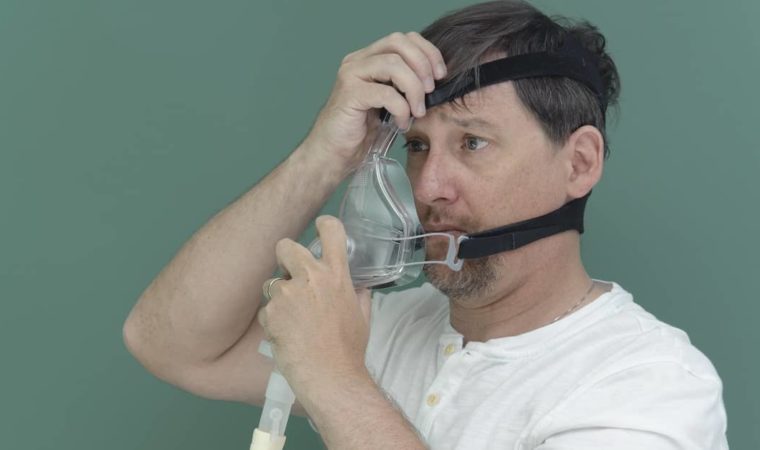
The Philips Respironics recall affects millions of patients who rely on the company’s respiratory care devices at home and in clinical settings. One of the major concerns with the recall is the impact on patients with sleep apnea.
An estimated 22 million Americans live with sleep apnea, a condition that causes people to stop breathing for brief periods of time when they are asleep. Sleep apnea is associated with a number of adverse effects, from increased fatigue and mood disturbances to a higher risk for life-threatening conditions like heart disease and diabetes.
Therapy with a continuous positive airway pressure (CPAP) device is considered the “gold standard” for the treatment of sleep apnea. However, with the Philips Respironics recall, many patients are left with a dilemma: (a) Continue CPAP therapy with a Philips Respironics device and risk harm or (b) Discontinue CPAP therapy and allow the symptoms of sleep apnea to go unchecked.
Attorneys at the Whitley Law Firm are currently investigating the Philips CPAP recall. If you or a loved one suffered adverse health effects from a defective CPAP machine, it won’t cost anything to see if we can help.
Why Are CPAP Devices Being Recalled?
Philips Respironics initiated a recall earlier this year on select CPAP machines (as well as BiPAP (bilevel positive airway pressure) devices and ventilators) due to issues with the foam used to reduce noise and vibration. The sound abatement foam is made from polyester-based polyurethane (PE-PUR). When this foam degrades, the user is exposed to toxic materials.
Users of CPAP machines and other recalled devices from Philips Respironics can suffer harm from PE-PUR exposure in several different ways:
- Inhalation: Small black fragments break loose as the foam inside the recalled devices deteriorates. Pieces of foam can be inhaled through the nose and/or the mouth.
- Ingestion: Users may also swallow foam fragments if they enter the mouth or the throat.
- Off gassing: Chemicals are released in addition to foam particulates. These gases may be inhaled by the users of Philips CPAP devices.
PE-PUR can have toxic and carcinogenic effects on the human body. The lungs, liver, and kidneys are the organs most likely to suffer damage. Cancer risk is also elevated for those who have been exposed to polyester-based polyurethane.
Is Your CPAP Making You Sick?
Despite its effectiveness in treating sleep apnea, many patients have difficulty acclimating to their CPAP device. Newcomers to CPAP therapy often struggle with discomfort and fitful sleep. Long-term use of a CPAP can lead to issues such as:
- Irritation and/or inflammation of the eyes, nose, and mouth
- Skin irritation of the parts of the face covered by the mask
- Greater likelihood of infections of the sinuses and upper respiratory tract
These issues – in conjunction with frequent headaches, nausea and vomiting, and other symptoms – are also among the less serious health problems associated with exposure to PE-PUR from defective CPAP machines. If you use one of the recalled CPAP machines, you should speak to your doctor immediately about stopping use of the device and finding an alternative option for treating your sleep apnea.
Environmental factors can increase the rate at which the sound abatement foam degrades. If you live in a hot or humid climate or store your CPAP in an unsuitable location, you may be more likely to be exposed to harmful foam pieces or chemicals.
Another issue that can exacerbate the degradation of PE-PUR foam is the use of ozone and UV light cleaners. If you use any type of CPAP machine, it is important to follow the manufacturer’s recommendations for sterilizing the device.
What to Do If You Use a CPAP Machine
Philips is advising patients with recalled CPAP and BiPAP machines to stop using the devices immediately and consult a doctor about alternatives. The manufacturer also encourages customers to register the device online to receive updates related to the recall.
If you or a loved one begin to feel ill after using a CPAP machine, you should seek medical care as soon as possible. Be sure to tell the doctor and other providers if you were prescribed one of the recalled Philips Respironics CPAP devices.
At this point it is not clear what steps Philips will take to correct the health risks posed by the dangerous PE-PUR sound abatement foam. If you receive a notification advising you to return your CPAP device for repair or replacement, don’t take this step without speaking to a defective medical device attorney first.
If you were diagnosed with cancer or suffered organ damage as a result of exposure to the toxic foam in a Philips Respironics CPAP machine, it is crucial to establish that you used one of the defective devices. An experienced lawyer can investigate the device, help you gather the necessary evidence, and build a claim.
Defective CPAP? Contact a Lawyer Today
Claims involving defective medical devices are complex. It is important to seek knowledgeable legal guidance to improve the likelihood of a favorable outcome.
With the Whitley Advantage, you can have confidence that your case will be handled by experienced, compassionate professionals. We understand the toll that serious injuries and the wrongful death of a loved one can take, and our team is proud to pursue the compensation you and your family deserve for these losses.
Please contact the Whitley Law Firm today at (919) 785-5000 today to review your case for free. Our lawyers have offices in Raleigh, Kinston, and New Bern, and we are currently accepting Philips CPAP defect claims throughout North Carolina and other areas of the United States.


